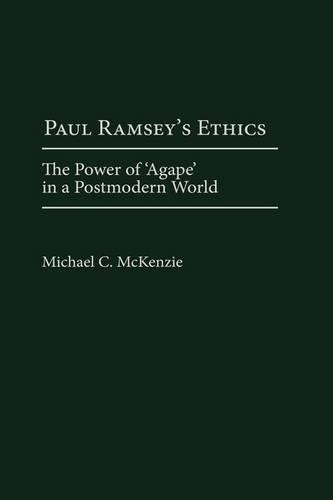
Paul Ramsey's Ethics: The Power of 'Agape' in a Postmodern World
(Hardback)
Publishing Details
Paul Ramsey's Ethics: The Power of 'Agape' in a Postmodern World
By (Author) Michael McKenzie
Bloomsbury Publishing PLC
Praeger Publishers Inc
30th November 2000
United States
Classifications
Tertiary Education
Non Fiction
Christianity
Theology
Western philosophy from c 1800
241.092
Physical Properties
Hardback
200
Description
This book examines the moral philosophy of Paul Ramseyone of the 20th century's most influential ethicistsfrom a theological perspective illustrating that religion can still play a substantial role in our ongoing moral inquiries. Ramsey wrote prodigiously on ethical issues including politics, medical research, the Vietnam war, and nuclear proliferation. His ethical theory, which concentrates on divine love, or `agape,' as well as justice and order, provides a middle ground between fundamentalism and secularism. Therefore, Ramsey's ethics will appeal to the 21st-century social conscience. McKenzie grounds his theological exploration in a comprehensive history of the theological and philosophical influences on Ramsey's thought, including Jonathan Edwards' theory of natural morality. He also explores a multidisciplinary selection of Ramsey's writings. In conclusion, McKenzie argues that Ramsey's natural law theory will continue to have significant and increasing relevance for morality in the postmodern world. This is the most thorough study of Paul Ramsey's work as well as a significant contribution to philosophy and theology.
Author Bio
MICHAEL C. McKENZIE is Assistant Professor of Philosophy and Religion at Keuka College in upstate New York. He is the author of Understanding the Faith of Jehovah's Witnesses (1999), Philosophy for Normal People (1998),and is Associate Editor of the forthcoming World Mythology (2001). He has taught at the college level for eight years.
